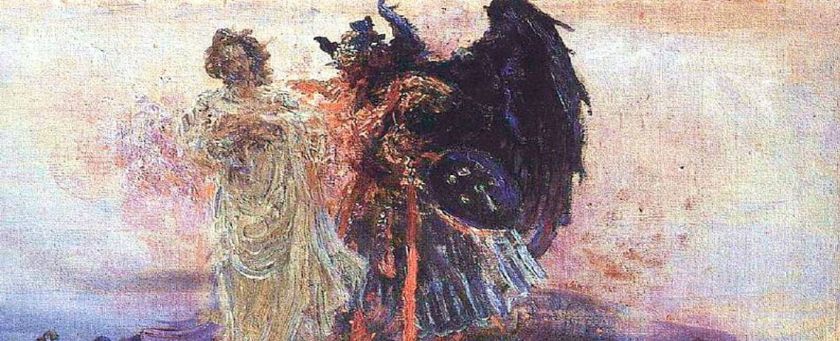Who Do You Say That I AM?
Twenty-Fourth Sunday in Ordinary Time, Year B

(Audio recorded live, 12 September 2021)
Readings:
Is. 50:5-9a; Ps. 116; Jas. 2:14-18; Mk. 8:27-35
This weekend marks the twentieth anniversary of the 9/11 attack on our country, and so we remember those who died, their families, and the many first responders, police and firefighters who brought aid. This terrible tragedy will never be forgotten, nor the sacrifices of so many who risked their lives to save others. St. James says, “[F]aith of itself, if it does not have works, is dead.” For those who remember, twenty years ago, the whole world was united in good works: Works of faith, works of charity, works of rescue, works of restoration. And while two decades have passed, for those of us who witnessed it, we remember how so many churches came together to offer Masses and prayers and support to one another.
In a certain sense, we might say the coronavirus pandemic is the 9/11 tragedy of our day. So many have died, and many more even from adverse reactions to vaccines. But, after nearly two long years of struggle with a deadly pathogen, we discover what we have always known: Life involves risk. Life always involves risk. All we can do is mitigate the risk to the best of our ability. How we go about mitigating that risk, however, is up to each individual. No one can decide for us whether or not we get behind the wheel, or cross the street, or have a medical procedure. What is up to us, however, is how we prepare to make such a decision.
Jesus knew that he was taking a risk when he began his ministry. Jesus knew that the moment he manifested his power publicly, he would be hated by the religious authorities. Jesus knew that he would have to contend with many in order to convert just a few. That is why he asked his disciples who people said he was. He did not ask because he cared what the masses thought, rather, he asked because he wanted to know what the few thought—what his disciples thought. “Who do you say that I am?” is a question directed to every disciple, and it is a question that every disciple has to answer for themself. Jesus is not some charlatan quack healer trying to make money from people, nor is he the reincarnation of some prophet, rather, he is the Christ, the Holy One of God. “Who do you say that I am?”
As the Holy One of God, Jesus takes on the character of the Suffering Servant from our first reading. He is the one described by the prophet Isaiah, who knows that he will not be put to shame who has the Lord God as his help. This confidence in his mission gives Jesus the resolve to describe exactly what will happen to him in Jerusalem. When Jesus began his public ministry, he sealed his fate in Jerusalem. And what was his fate? To be made a spectacle? To be tortured for no purpose? To die a shameful death on a cross like some criminal? No, Jesus came to suffer that way so that he would rise after three days.
Peter’s objection to Jesus is one of human concern. No one wants to see another human being suffer. It was almost as if Peter was cutting Jesus off mid-sentence because all he heard was suffering, rather than listening to the important part about rising on the third day. But, as always, Jesus turns such impetuous remarks into a teaching moment. He rebukes Peter by calling him Satan, that is, “Opposer.” In Hebrew, ha satan, means “one who opposes,” or “adversary.” Peter was standing in opposition to Christ and his destiny; Peter was opposing the work of Almighty God.
The take-away message of the gospel is one of self-denial. Jesus had already accepted his destiny. He set his face like flint towards Jerusalem and there was no talking him out of it. He knew that the salvation of every human being rested on his shoulders and he would not let even his most outspoken disciple stand in the way. Nor should we. All we need do is step aside and follow Jesus. Pick up our crosses daily and follow him.
When we follow Christ, we join ourselves to his cross, to his sacrifice, to his selfless act of love for the world. Jesus says, “No one has greater love than this, to lay down one’s life for one’s friends” (Jn. 15:13). Jesus models this for us by his own sacrifice, and we are called to do the same. By our acts of self-denial for the sake of others, we exemplify the sacrifice of Christ. By our giving to those in need, we embody the giving of Christ. And by our love for God and neighbor, we preach the gospel with our very lives.
So, may the communion we share today help us to deny ourselves for the sake of our neighbors, to give without counting the cost, and to be true instruments of God’s peace in the world.





Share this post
Twitter
Facebook
Pinterest
Email